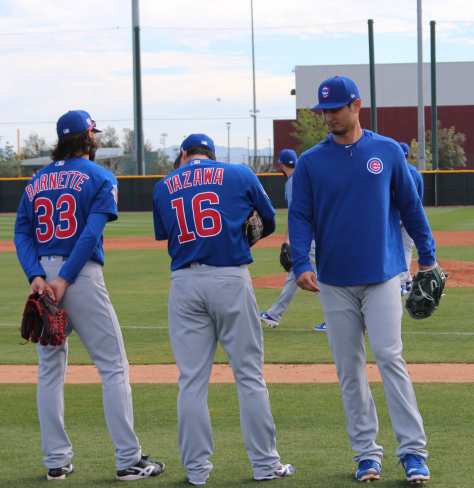When he retired as a pro in 2017, Tadahito Iguchi, the second baseman for the Chicago White Sox’s 2005 World Series champs, said he someday hopes to be back in a Sox uniform.
“Yes. That’s my dream,” the second-year Lotte Marines manager said in March.
Iguchi returned to Japanese baseball in 2009 after four years in the majors, and though his career appeared all but over at the time, he went on to play 10 more seasons before retiring in 2017. From there, he moved straight into the manager’s chair at Zozo Marine Stadium. He said it was not an easy decision to make that jump, but didn’t want to throw away the edge of knowing what his players were capable of by having been on the front lines with them.
Remembering Ozzie Guillen
Iguchi said the biggest skill he takes into managing is communication and cited his former Sox skipper Ozzie Guillen as his biggest influence.
“In some sense, he (Guillen) is kind of crazy,” Iguchi said. “But he communicates well and is charismatic.”
“Having been with the players here as a teammate when I was still playing and speaking with them on the bench, I think I’d established good communication with them.”
How about the motivation side?
“He (Guillen) has the ability to motivate people. That’s something I think I lack,” Iguchi said.
One of just a handful of Japanese position players to go to the majors, Iguchi said he gained some insight into the differences between Japan’s game and America’s.
Coaching in Japan and America
“I could understand how the internal conditions differed between organizations here and there,” he said. “Japanese coaches are always teaching you how to do things. Over there, they are more like advisers, taking a supporting role. Japanese players generally wait for what a coach has to say. Over there, you do things on your own and when you don’t understand, you might seek advice.”
“In Japan, the coach does all the talking. So, I think there are a lot of Japanese players who don’t really understand their own strengths.”
As part of his plan to revitalize the Marines and build a foundation for the future, Iguchi wants to adopt a more hands-off approach to young players from this season, although one expects it won’t be easy.
“There is something about Japanese baseball that makes coaches want to teach too much,” he said, although he will have a willing ally in the form of pitching coach Masato Yoshii, also a former big leaguer.
In his final year as a player, the Marines finished dead last in Japan’s Pacific League. in 2018, they escaped the cellar by two games. Iguchi said that as a rookie manager, he may have hurt his win total by sticking too long with less proven players, but he hoped those investments pay dividends down the road.
For someone who played 21 years, perhaps it’s natural for Iguchi to have a long-term vision, one that contrasts with the win-now mentality that some here see as a cancer in Japan’s beloved sport.
Changes are coming
Activists trying to protect the arms of elementary and junior high school kids believe that teaching the youngest kids that winning is the only thing that matters encourages abusive excessive practice and leads to burnout and arm injuries. They are calling for pitch and practice limits, and Iguchi said such rules are inevitable.
“That’s the era we’re in,” he said. “These days we are concerned with how many days a guy throws. It’s the same in America. That’s where we are headed so I don’t think there’s any going back.
“When I was in elementary school, I hit off a tee at home all the time. I think long practice hours just for the sake of winning might be a problem. If the purpose is to learn teamwork and communication with others, then long hours are well spent I think.”
“We do have to be concerned about kids’ health. I played rubber ball baseball when I was in elementary school. So many players never went on to play at a higher level because they ruined their shoulders or elbows. I think was lucky I wasn’t a pitcher. For the coaches to coerce the kids is something I am not sure about, but I want people to strive more and more to be No. 1.”
That’s something Iguchi has ample experience with, having won three PL pennants with the Hawks a Japan Series title with the Marines and, of course, the 2005 World Series win in Chicago.
2005, making it look easy
Oddly enough, that championship kind of snuck up on Iguchi, who was simply too busy playing hard to see the bigger picture going on around him.
“I was just going as hard as I could for the whole season, and it was more a feeling that I did all I could rather than a sense of accomplishment,” he said. “Perhaps had we not won the first year and then won the second, then I would have been happier. But I was just going from start to finish, and didn’t really have a grasp for what was happening.”
And after he accomplishes his mission in Chiba, east of Tokyo, Iguchi may turn his gaze again to the south side.

